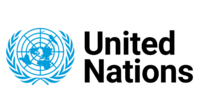Mary Evelyn & John Across China
The launch of the new Ecological Civilization section of our website coincided with a 5-week journey to China that Mary Evelyn and John undertook to engage in this topic further. There, they gave many talks and interviews and participated in numerous conferences to build further bridges and share the ideas and aspirations of Ecological Civilization. Go here to read the full report on that trip with images, video, and more.

Institute for Ecological Civilization
EcoCiv aggregates and amplifies existing solutions or actions, connecting dots between siloed issues and breaking down barriers in order to catalyze action. Specifically, EcoCiv supports local partners in the process of designing and implementing more effective and efficient solutions in particular locations (“hubs”), and then aims to prompt the replication and scaling of those solutions in other locations. The goal of these interventions is that an increasing number of communities make measurable progress toward a just and sustainable society.

Stanford University: Info on Ecological Civilization
Stanford's Center for China's Economy and Institutions (part of the Freeman Spogli Institute for Economic Policy Research) provides information on their site regarding pilot studies and programs to assess the progress of ecological civilization in China, account for nature in the economic metric, and look for Nature-based solutions to China’s development challenges.

UN site: Ecosystem Accounting and Ecological Civilization in China
As China moves toward the goal of ecological civilization enshrined in its constitution, ecosystem accounting is providing an avenue to illuminate the critical links between the environment and economy. Ecosystem accounting highlights the often-neglected contributions of natural systems, promoting better resource management and sustainable growth. The Experimental Ecosystem Accounts under the System of Environmental-Economic Accounting (SEEA) provide the framework for developing information that supports rigorous, data-driven, and transparent decision making.

Center for Process Studies Ecological Civilization Archive
The Center for Process Studies (CPS) is a nonprofit think-and-action tank that conducts interdisciplinary research and education to cultivate holistic understanding for human and planetary flourishing. This page lists their blog posts and resources related to ecological civilization.
Open Horizons: Creative Localization: A Community-Based Approach to Ecological Civilization in Practice and Theory
Open Horizons is an evolving collection of webpages by different writers and artists exploring a process-worldview and way of living. This page, curated by Jay McDaniel, offers a variety of interesting resources on ecological civilization and creative localization, including an abundance of real-world examples.

Pando Populus: Ecological Civilization
This resource list from Pando Populus titled “Birth Pangs of Ecological Civilization, Agroecology, Meat, Sustainability, Population” provides links to video, audio, and print materials related to these topics.

Earth Charter: Ecological Civilization
The Earth Charter is a document with sixteen principles that drive a global movement towards a more just, sustainable and peaceful world. To support the movement, the ECI Education Center offers courses, resource materials and network opportunities to turn conscience into action. On this page you'll find podcasts, webinars, and more to expand your engagement with ecological civilization.

Cobb Institute: Ecological Civilization
Named in honor of their founder John Cobb, the Cobb Institute is inspired by the knowledge that all life is interconnected and in process of becoming. With this comprehensive vision, they engage in initiatives that foster the flourishing of individuals, communities, and our common home–the planet we all inhabit. They seek to advance ways of understanding and living that embrace this view in order to bring about fundamental transformations. This page lists their courses and events related to ecological civilization.
The Institute for the Postmodern Development of China
The Institute for the Postmodern Development of China weds the best Chinese and Western resources to identify global pathways toward ecological civilization.

CGTN
The CGTN website reports on various environmental issues in China.

Ecological Civilization Wikipedia entry
The Ecological Civilization listing on Wikipedia provides a broad overview of the history of the term and its implementation in China and provides some helpful links and sources in the references.


